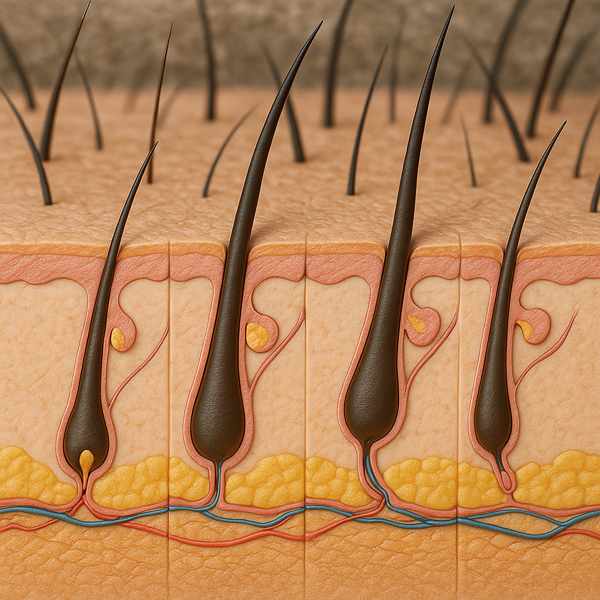
Losing weight is often a positive step toward better health, but it can sometimes come with surprising side effects — like hair loss.
Understanding why this happens and how to protect your hair can help you reach your goals without compromising your confidence.
Why Hair Loss Happens During Weight Loss
Hair loss during weight loss is usually a result of physical stress or nutritional deficiencies.
Common causes include:
- Lack of protein, iron, or vitamins
- Extreme calorie restriction
- Hormonal imbalances
- The body reacts to sudden changes
What Type of Hair Loss Is It?
It’s a temporary condition where hair enters the shedding phase prematurely.
Key facts:
- Usually occurs 2–3 months after weight loss begins
- No bald patches, just thinning
- Hair usually grows back with time
Eat for Hair, Not Just Fat Loss
If you're trying to lose weight, be sure not to miss these nutrients:
- Protein
- Iron
- Biotin and other B vitamins
- Zinc
- Vitamin D
Skipping meals or using crash diets can easily lead to deficiencies that trigger hair loss.
Staying Healthy Without Sacrificing Hair
It’s possible to do both by following a balanced and mindful approach.
Tips include:
- Aim for 1–2 pounds per week
- Focus on whole, balanced meals
- Especially during calorie restriction
- Both affect hormones and hair health
- Stay hydrated
Next Steps After Hair Thinning Starts
If you notice excessive shedding:
- Don’t panic
- Get bloodwork done
- Focus on protein and iron intake
- Try gentle hair care
- Hair regrowth takes a few months
Getting Expert Help for Hair Loss
A doctor or dermatologist can help identify underlying issues like:
- A common cause of both weight and hair changes
- Autoimmune conditions
- Severe nutritional deficiencies
The Truth About Weight Loss and Hair Loss
Weight loss and vitamins for hair loss after bariatric surgery hair loss can be connected, but they don’t have to be permanent partners.
Prioritize nourishment, patience, and consistency, and your body will thank you — from head to toe.